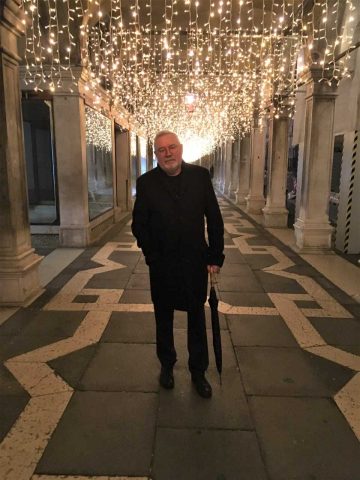Modern communication: Barbed wire vs pipeline

Vladimir Belous,
Professor,
Department of Russian Politics, Faculty of Political Science, St. Petersburg State University,
Russia
Global society is a term that explains not so much institutionalization, but communication. War, treaty, exchange of goods and services, migration, sports, tourism, the World wide web, a pandemic – these are all different types of universal communication. Globality gives communication a fundamentally new character. Everyone becomes the subject of communication and interaction.
I am writing this text in the first person, appealing to the statement of T. Hobbes: “every man is an Author” (Leviathan). I happened to be born in a country surrounded by the Iron Curtain. Obviously, at that moment I was completely unaware that the great victories of the ancestors were accompanied by serious defeats. Now I’m not talking about the results of military battles, but about political communication in the broadest sense of the word. With each historical epoch, my country has concentrated around itself more enemies than friends (both are called so in the context of K. Schmitt’s reflections).
The enemy always lives in the neighboring village. If we consider the Baltic region, historical Russia fought with the states of the Swedes, Poles, Finns, Germans, and occupied partially or completely other state formations of the contemporary Baltic. Military victories do not automatically turn enemies into friends. The accumulation of grievances in historical memory does not lead to good. Communication, linked by enmity, tied by mutual bloodshed, is not viable either in time or in space. Nevertheless, memory has a special property – forgetting: forgetting the bad and keeping the good.
In the mid-1970s, in the Soviet Union, the country’s leader pronounced a phrase that has since been forever stuck in my memory: “International relations are relations between peoples”. Then this statement looked like a tautology. However, in a global society, peoples really began to communicate in a new way. The irony of the historical moment lies in the fact that in the postcolonial world the response to the mission civilisatrice of some is a counter-offensive of others, to put it mildly, not entirely civilized. Boomerang tends to come back.
Here it will be appropriate to use the term “overturned bedding”. In geology, this term describes the process that occurs as a result of intense and prolonged tectonic movements. This metaphor can help to explain contemporary international political processes. Politics ipso facto is controversial. For every ‘yes’ there is always a ‘no’. Gas pipelines can be built to connect economies and meet the needs of those who make a profit, or state borders can be strengthened with additional kilometers of barbed wire. In communication, there is always not only unification, but also division.
In the late 1980s, the first and the last president of the Soviet Union wrote a whole treatise on new thinking for fellow citizens and all of humanity. M. Gorbachev described then a modernist project of “universal” goals and values. But in reality, what should have happened happens. Ultimately, both new thinking and a new image of culture indeed formed that united humanity, which received a common name – postmodernism. This is the very “final confusion” which the Russian philosopher K. Leont’ev prophetically described more than hundred years earlier.
In 1975, when politicians signed the Helsinki Memorandum, free communication seemed to me (at that time a student of the Faculty of Philosophy of Leningrad University) an absolute utopia. However, any declaration is created for future generations. Today I can say with confidence that it is not peoples who communicate, but real people: everyone with everyone. My intellectual development, already in adulthood, since 1991, was accompanied by acquaintance with customs and culture, and most importantly, fruitful communication with colleagues from the USA, Poland, Czech Republic, Sweden, Japan, Germany, China, Spain, Greece. Joint projects, international conferences, personal friendly contacts – all this is special, scientific tourism.
However, this kind of communication was characteristic of the “pre-Covid” era. But there is good news as well. In the modern digital civilization, each person, due to the Internet, has the opportunity to overcome any boundaries and communicate with everyone. In any historical society there are people who take on the mission of political reflection. I believe that one of the most important tasks that the new era assigns to modern intellectuals is to comprehend the forms and content of future communication.
In a global society, every country and every individual are doomed to be themselves, to hold on to their own habits and traditions. Society will demand new declarations, new manifestos, new ideologies. To paraphrase the famous Manifesto of 1848, my appeal to the scientific community is: Intellectuals of all countries, communicate!
Expert article 3049
> Back to Baltic Rim Economies 4/2021
To receive the Baltic Rim Economies review free of charge, you may register to the mailing list.
The review is published 4-6 times a year.
